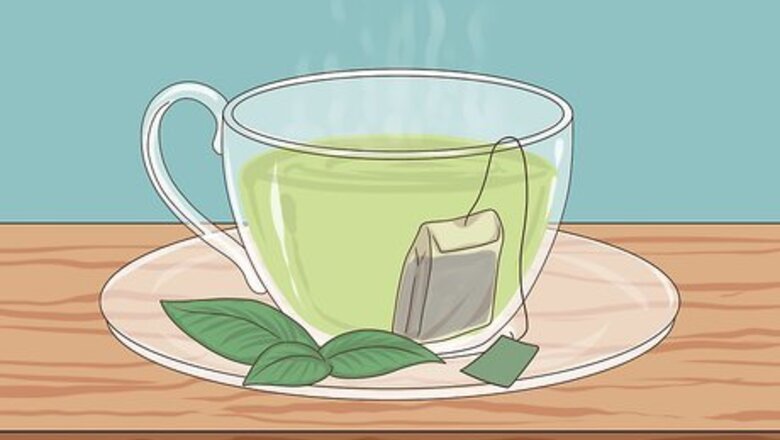
views
Teas That Fight Inflammation
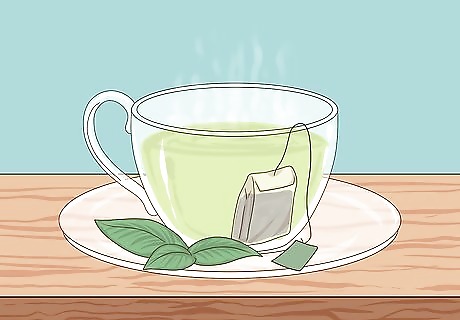
Make green or black tea for general systemic inflammation. Both of these common tea types have demonstrated anti-inflammatory properties that could help with inflammation in your joints, airways, and digestive system. Green tea is slightly more effective, but both are good choices. Always use tea bags or leaves instead of powder. Powdered tea is heavily processed and won’t have as many nutrients.
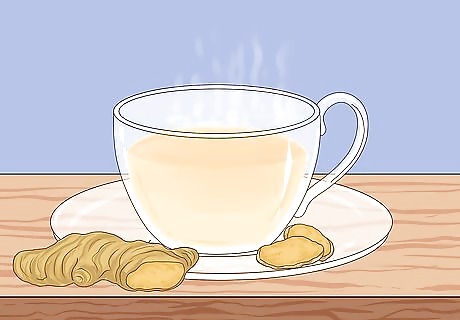
Choose turmeric or ginger for joint pain. These ingredients are popular among arthritis and tendonitis sufferers. They can relieve joint swelling and stiffness. Turmeric also comes as an anti-arthritis dietary supplement in pill form. Talk to your doctor to see if this would be right for you.
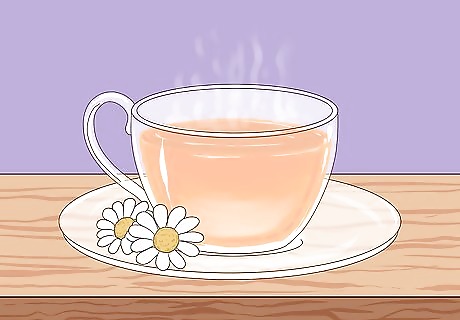
Treat skin conditions with chamomile. Chamomile is often used for topical inflammation like burns, rashes, eczema, and dermatitis. It can reduce the inflammation and also relieve some of the itching that comes along with these conditions.
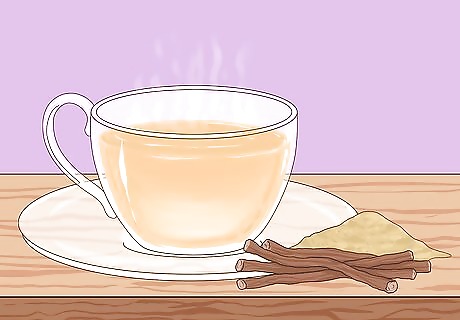
Fight digestive inflammation with licorice root or chamomile. These 2 ingredients are known to combat indigestion, ulcers, and acid reflux.
Brewing Your Tea
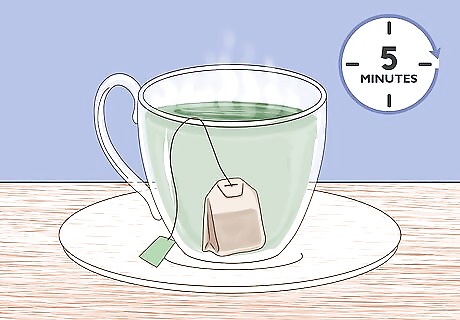
Steep a teabag in boiling water for at least 5 minutes. Place the teabag into a mug and pour boiling water over it. Let the bag steep for at least 5 minutes so the tea is strong enough. Some herbal teas, like chamomile, have to steep a little longer. Check the brewing instructions to confirm the time.
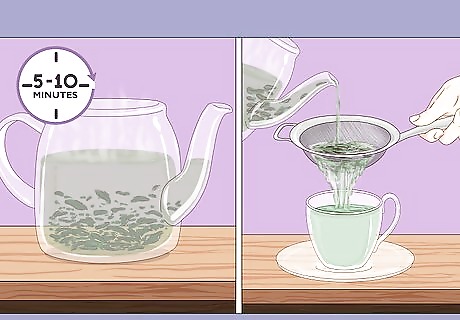
Strain the tea if you use loose leaves to brew it. Some herbal teas come in leaf form without a bag. In this case, steep the tea for 5-10 minutes and then run it through a strainer to remove any leaf fragments. You could also use an infuser so you don’t have to steep the tea.
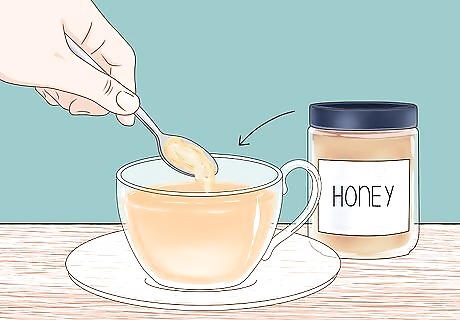
Add honey for an anti-inflammatory boost. Honey also has anti-inflammatory properties. Add some to fight respiratory or joint inflammation. If you’re using the tea to relieve digestive inflammation, then honey might not be a good choice. The sugar could upset your stomach further.
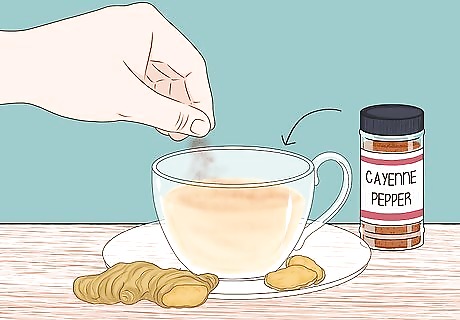
Sprinkle in some black or cayenne pepper to help with joint pain. These 2 spices can also reduce inflammation from arthritis or joint injuries. Add them to turmeric or ginger teas to fight inflammation further.
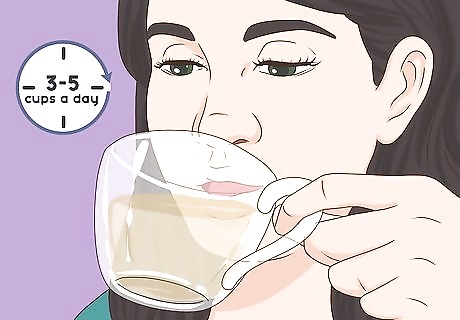
Drink 3-5 cups per day for the best results. This keeps the anti-inflammatory nutrients in your system so they can work as efficiently as possible. Most herbal teas are caffeine-free, so you don’t have to worry about disturbing your sleep. But double check to avoid insomnia.
Using Herbs Safely

Avoid any herbs that you have an allergy to. If you know you have plant allergies, then it’s best to avoid herbal teas. Chamomile, in particular, could trigger minor allergic reactions in certain people with allergies to ragweed, chrysanthemums, marigolds, or daisies. If you do experience itching, sneezing, swelling, or rashes after drinking herbal teas, stop right away and visit a dermatologist for a test.
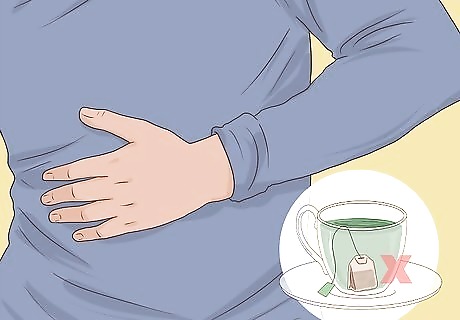
Stop using the herbs if you experience any negative side effects. Some common negative side effects might be stomach pains, nausea, rashes, headaches, or dizziness. Stop drinking the tea right away if you feel these effects.

Ask your doctor if herbal teas are safe while you’re pregnant. The effect of herbal teas on pregnant people and their babies isn’t entirely clear. It’s best to ask your doctor if herbal teas are safe before you start using them.

Contact your doctor if the inflammation doesn’t subside in a few days. If you were using the tea to treat a specific issue, then it should go away within a few days. If it doesn’t then your treatment may not be working and it’s best to consult your doctor for further care.

















Comments
0 comment